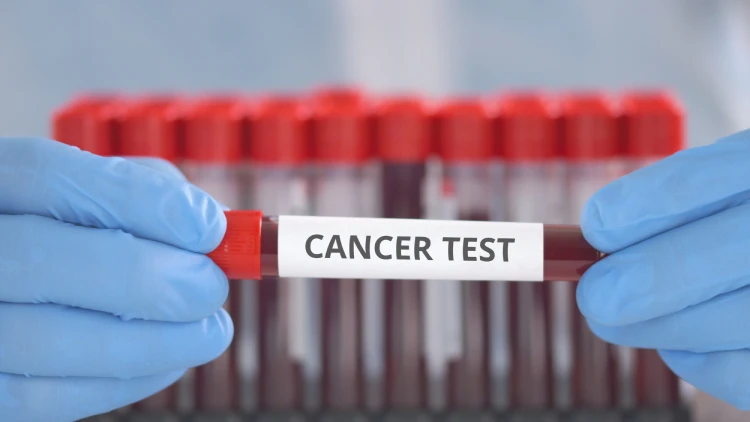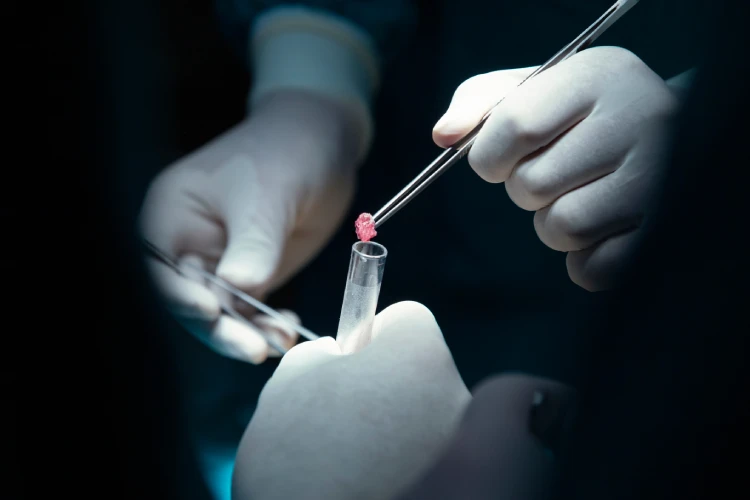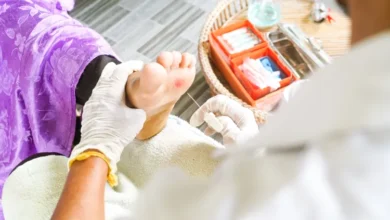NHS Trials Blood Test to Detect 12 Common Cancers with Over 99% Accuracy
Simple Blood Test Could Spare Thousands from Invasive Cancer Procedures and Transform Early Diagnosis Across the UK

A new NHS-backed trial is underway that could reshape the way cancer is diagnosed. The miONCO-Dx blood test, which uses artificial intelligence to analyze blood samples, has the potential to identify 12 of the most widespread and deadly cancers without the need for invasive procedures.
Developed by the British biotech firm Xgenera alongside researchers from the University of Southampton, the test examines microRNA—fragments of genetic material linked to cancer activity. These markers are then processed using AI to detect if cancer is present and where in the body it may be.
A Blood Sample Instead of a Biopsy

For many cancers, diagnosis still depends on methods like colonoscopies or biopsies, which can be stressful and time-consuming. This new approach requires just a small vial of blood. Once analyzed, the AI system can flag the presence of cancer cells with a reported accuracy of over 99%.
The test targets a wide range of cancers including bowel, breast, lung, prostate, pancreatic, and others. This broad reach is one of the reasons it’s being considered as a future screening tool.
Who’s Part of the Trial and What They Hope to Prove
Roughly 8,000 people will take part in the NHS trial—some already showing signs of illness, others not. The idea is to measure the test’s performance across a variety of conditions and confirm how it might work if used more broadly in routine care.
To support its development, the UK government has allocated £2.4 million toward the project. Secretary Wes Streeting, who himself has undergone cancer treatment in the past, early and accurate detection is essential if survival rates are to improve. He called this initiative a step toward speeding up diagnosis and easing the burden on NHS services.
Making It Fast, Scalable, and Cost-Effective
One of the biggest challenges in cancer care is catching the disease early without overwhelming health systems. Known as miONCO-Dx, the blood test could provide a practical alternative to conventional cancer detection methods. It only needs 10 to 15 drops of blood and costs far less than current diagnostic tools—estimated between £120 and £300 per test.
Andy Shapanis, who leads Xgenera, says the real goal is to develop something that could work at a national level. “We’re looking at a tool that can operate at scale without sacrificing accuracy,” he explained. In early tests, the technology performed equally well in detecting early- and late-stage cancers.
Building the Foundation for National Cancer Screening
If the full trial goes well, this test might one day be offered as part of standard NHS checkups. That could significantly cut down on diagnostic delays and reduce the need for more invasive investigations.
Bowel cancer, for example, is among the illnesses this test could detect. While it’s the third most common cancer in the UK, it often goes unnoticed until it’s too late. When diagnosed in its early stages, bowel cancer has a survival rate close to 90%. But if it’s detected late, that rate can fall dramatically to around 10%.
Research and further development will continue at the newly renamed BowelBabe Laboratory at the Francis Crick Institute in London. The facility honors the legacy of Dame Deborah James, who died of bowel cancer in 2022 and raised millions for research before her passing.
This project is also part of a wider national plan to modernize cancer care and make the latest detection technologies more accessible to patients across the UK. As Professor Lucy Chappell of the National Institute for Health and Care Research put it, tools like this bring us closer to faster, easier, and more accurate diagnoses—just when patients need it most.








